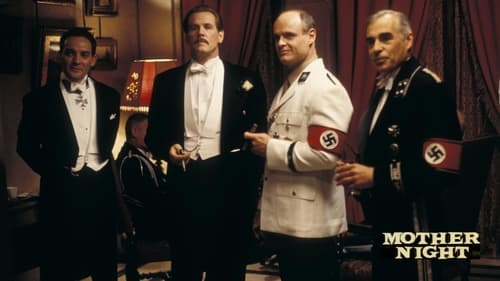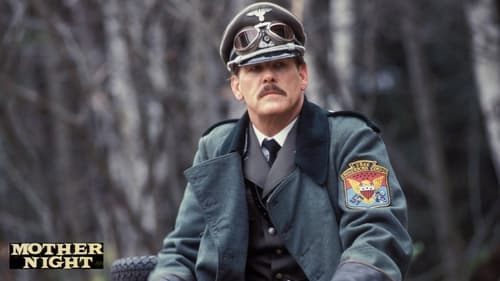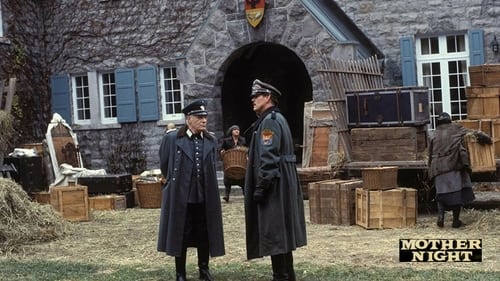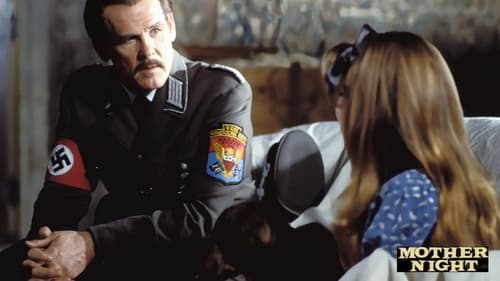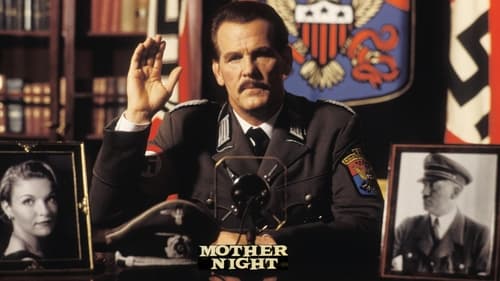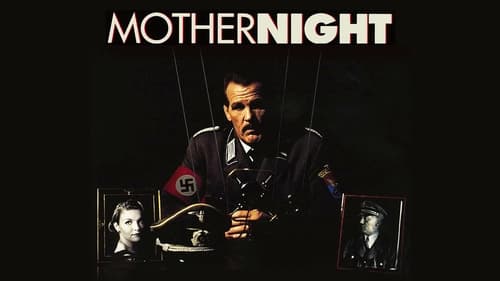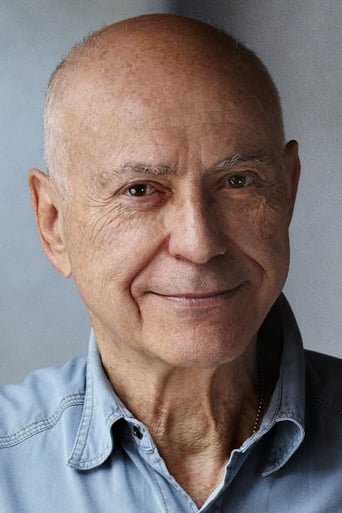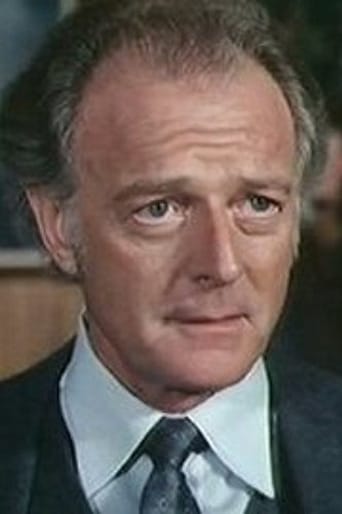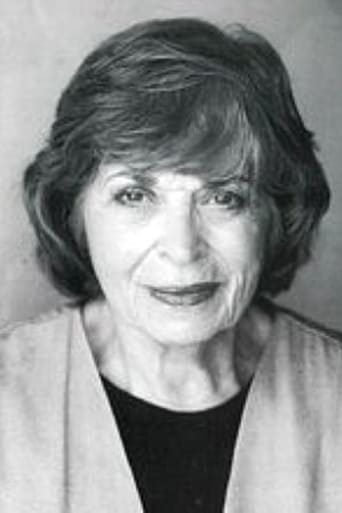waywardnow-564-994040
What seems to be overlooked in the assessments of this movie is the human need for redemption and the slight hope to find redemption, no matter the price found within reaching for it.I had read the book long ago and when I committed my own act of betrayal, and followed the Mother Night plot of going into similar hiding. I came to the point that I had to take personal responsibility and confess. Strangely, it was the finest hour of my life.Prison life is kinder to those who confess to repent. Sadly, some never do from fear and mistrust. I understand that, as there is no consideration for confession to be found in the Real World other than my own small bit of personal pride for having done the right thing. Yet, there is a bit of Howard Campbell in all of us, playing as a false hero to ourselves.
manuel-pestalozzi
I am amazed at the amount of praise that is heaped on this movie by other commentators. To me it was rather a disappointment, especially the combination of historical facts, fantasy and the main character's internal turmoil does not work at all (in Vonnegut's book Slaughterhouse Five and even in George Roy Hill's adaptation for the screen it does). Credibility is often overstretched. Too many questions are left open. Did I miss some central points? Or did I fail to spot the lines that supposedly connect the dots? A boy called Campbell, Jr., grows up in upstate New York. At home his father has many technical trade papers and one book. It has photographs of heaps of dead bodies in it. The boy leafs through the book, his dad doesn't like his doing that. What should this tell me? The family moves away from upstate New York to Berlin. BANG. It is 1938, the boy is a married man in Berlin and a theater playwright. What kind of plays does he write? In what language? Is he successful? His wife is an actress and looks glamorous. The parents move back to the USA and invite their son to do the same. He does not. Why? Because having grown up in Germany he feels more German than American? Because he is successful? Because his wife is? Because he likes his life there? Because he likes the Nazis? Because he is just plain lazy and doesn't like change? Don't ask me.Possibly, the man just does not care, is not interested in politics, is a kind of an existentialist. He states that he is deeply in love with his wife. He speaks of his Republic of Two (meaning he and his wife). There is little to no evidence proving his love for his wife in the movie, it much more seems a Republic of One.On the request of an American agent Campbell, Jr., agrees to broadcast anti Semitic Nazi hate propaganda to American listeners as a device for transmitting encrypted messages to American authorities who read between the lines. The crucial meeting with the agent on a Berlin park bench is short, unexciting and anti climactic, the decision to play along comes pretty easily with no explanation, the rise up to broadcaster seems to be uneventful and apparently fast.So now we have Campbell, Jr., presenting himself over the air as the Last Free American. The scheme for transmitting secret messages is fairly realistic and exciting - although one wonders what happened when Campbell, Jr., really and honestly had to cough, hiccup etc. (must have scrambled the messages terribly). Anyway, the Nazis lose, the wife dies (touring in the Crimean for German troops - I never heard such tours really happened on German front lines in WW II), Campbell, Jr., says he goes to the Russian front but does not go, is captured by an American soldier who recognizes his mug (how come?), is dragged to a sight-seeing tour in Auschwitz, is then released and resettled with the help of the Crucial Agent somewhere in the City of New York.AND THIS IS WHERE THE STORY REALLY STARTS BANG. From now on it is like a short story by Paul Auster. It is 1961, Campbell, Jr., lives in New York tenement as a has-been and mourns the loss of his wife. Nobody really cares - or do they? Yes, somehow they do, and his neighbors offer some sort of distraction. Auschwitz survivors. A painter. Some American supremacists „discover" him and want him to be their figurehead. They even find his presumed dead wife for him, or is she his wife? Anyway, in the end Campbell, Jr., calls in at the Israeli consulate, and they obligingly give him the Big War Criminal treatment, placing him in the cell adjacent to Adolf Eichmann's. He writes his life story and, once this task finished, hangs himself on the typewriter's ribbons without getting sooty the least bit.While I can see that there must be an issue of guilt and of loss, I just had the impression that the main character is a person who at all times is pretty indifferent to everything and hardly capable of love for anyone. So I found it difficult to sympathize for this looser who mourns his loss. Amazingly, many reviewers focus on his status as a potential war hero, having put his reputation at stake for playing the Last Free American. I assume according to them this took a lot of courage. As a matter of fact, however, the movie suggests that by accepting the assignment Campbell created for himself a win-win situation, as he would have been politically on the safe side no matter who had won the war. The danger of his being uncovered never comes up during the first part of the story.One might argue, that the whole story is a dreamlike fantasy and that nobody should bother with historical accuracy or a logical development of the story which explains everything. But even then it fails to make a point, primarily, I suspect, because the love affair in the Republic of Two falls completely flat. This is a pity, especially if you consider that the wife was played by Sheryl Lee, a talented, versatile and sensuous actress. She has much too little screen time and is forced to use a ridiculous German accent. Another somehow neglected aspect are the different texts (confession, broadcast and hidden messages), but I guess this is largely unfilmable. Maybe I should give the book a chance.
azureglo
Here's an exercise; Read a Kurt Vonnegut novel, notice the pathos and poetry, the black humour, the beauty of the language and ultimately the feeling of having become a little wiser about the Human race.Now watch this detached, soulless drudgery of set pieces and three act tedium. Nolte destroys any attempt trying to portray the tragedy here, going for a weary and bored performance. And weary and boring it is, you can see where the money has been spent but not one cent results in translating Vonnegut's poetry to this medium.It's sad to think of the few million dollars that was flushed down the tubes for this inept and insipid waste of film. It's one and only saving grace is a moving glimpse of the author as a passerby, in ten seconds of silent screen time Vonnegut himself packs more pathos and humanity than this turgid effort manages in nearly two hours.
edwagreen
Screenwriter Howard Campbell is recruited to serve in counter-espionage during World War 11. He moves to Nazi Germany and marries an actress whose family is faithful to their Fatherland. Campbell, portrayed well, by Nick Nolte broadcasts vitriolic propaganda for the Nazi Regime. Truth is that few people really know what Campbell is up to.The war ends and Campbell, with his wife presumed dead, heads to N.Y. for a new unassumed life. Here is where the picture falls apart. After several years, without anyone knowing him, Campbell assumes his real name.At this point, as stated, the film deteriorates into a series of unlikely events. A neighbor turns out to be a Communist spy. who notifies an Aryan supremacy group of Campbell's existence. The latter's dead wife suddenly shows up only to reveal later on that she is the sister of his dead wife. Still later, she is revealed to be a Communist as well. Too much is going on.Campbell eventually gives himself up and in flashbacks, sits in a cell and talks to Adolph Eichmann.We even have a suicide at the very end. I think this might have been to take the audience out of its agony from viewing all this.The picture really had a lot of emotionally sick people in it. At times, Campbell was so viciously good at reciting his anti-Jewish denunciations, you'd really begin to wonder if he meant it.

